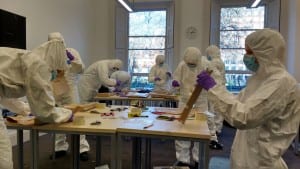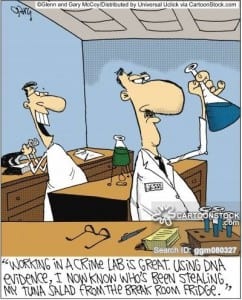Presenting Evidence in Court: Courtroom Assessment Day
By uctzsh0, on 14 July 2016
Sam here, checking in again. Classes have come to an end, and my MSc. colleagues and I are all working hard on our respective dissertation projects.

The Old Bailey. Its dome is topped by a bronze statue of Justice by sculptor F.W. Pomeroy. © UCL Media Services – University College London
When I first considered a career in forensic science, I sought advice from a friend in the field. He informed me that the skill most often lacking in applications to forensic science jobs is experience in presenting evidence in a courtroom. Knowing that I had to develop that skill to be a competitive applicant, UCL’s MSc. in Crime and Forensic Science appealed to me greatly because it places a great focus on the relationship between the forensic scientist and the criminal justice system.
In the module “Practices of Crime Scene Investigation and Expert Testimony”, we were evaluated on our ability to present our findings from a mock crime scene to a jury. After the presentation of evidence-in-chief (initial explanation of findings, led by questioning by the prosecution), we were grilled by the defence barrister (former forensic science master’s student turned lawyer). We had received formal training from Bond Solon on presenting expert evidence, and this mock court was a way to put that to good use.
Although it was intimidating at times, and questions were sometimes posed to trip us up or to create doubt, taking a deep breath and clearly thinking about how to answer each question was the best way to proceed. The experience showed me how much preparation is involved in expert witness testimony, and how difficult it can be to break down technical knowledge into language that anyone (in this case, the lay jury) can understand. I found that the training we received, along with visits to the Old Bailey to observe a real courtroom, were extremely helpful.
The experience of presenting evidence in court myself as well as observing my classmates’ testimonies helped to solidify the content of this module and the course as a whole.
See my previous posts on the UCL Centre for Forensic Sciences Blog here:
 Close
Close





